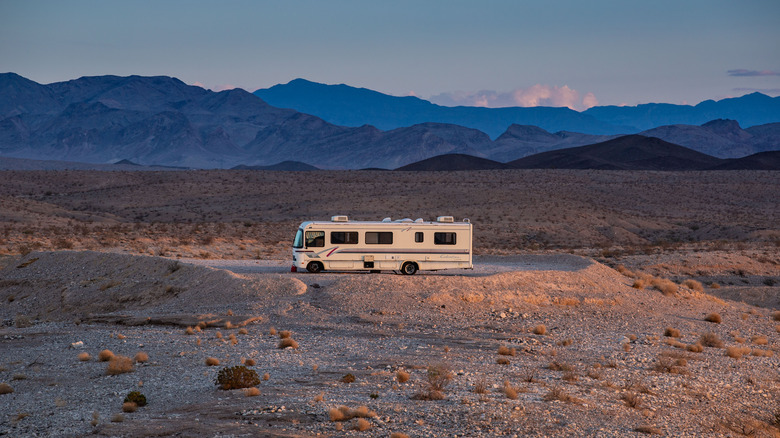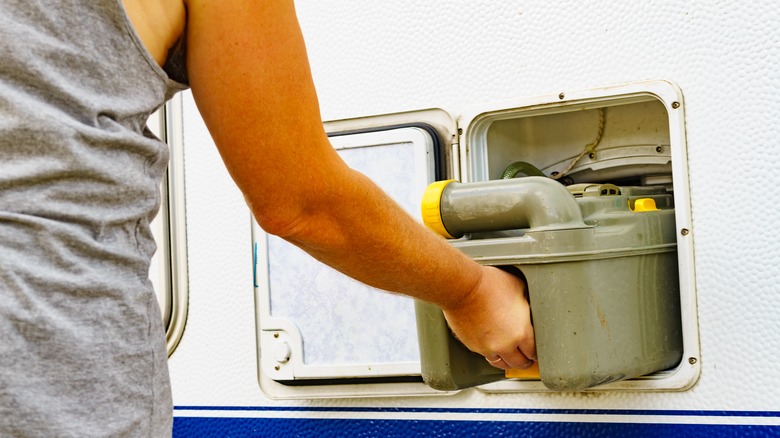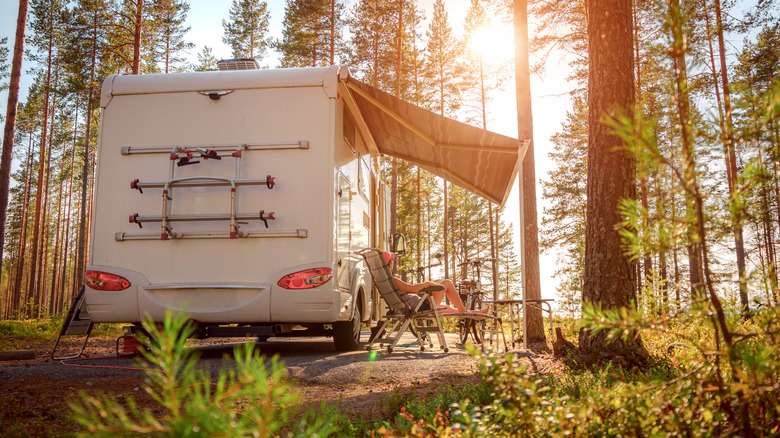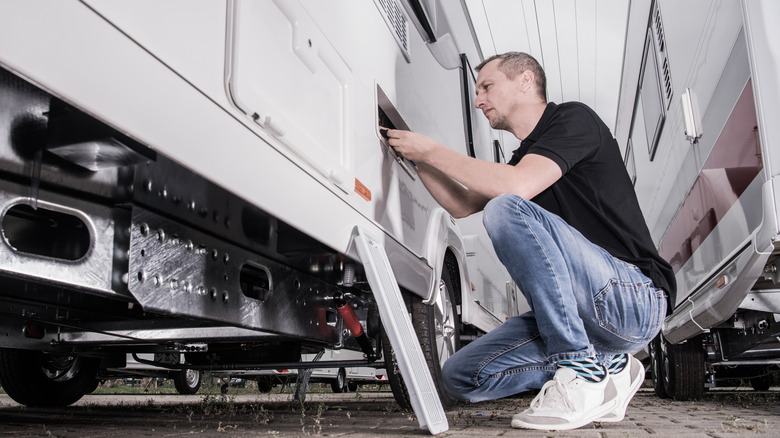3 Things You Should Know Before Buying An RV
In the past few years, RV ownership has become increasingly popular. In fact, according to the RV Industry Association, more than 11 million people in the US own RVs, which equates to about 11% of the population. Moreover, 25 million Americans go RVing a year, Condor Ferries states, so it's safe to say it's a well-loved activity. If you're looking to join the RV community, there are a few things you should know in order to make the best out of your experience.
Reading up on RV life also gives you the inside scoop on how to ensure you have the best RV ownership possible. Being well-educated about RVs will not only help you enjoy your camping trips, but knowledge on the topic can save you time and money when things go wrong. Let's take a look at some of the most important things you should know before buying an RV.
The difference between tanks
Most RVs have separate water tanks that serve different purposes, and it is important to understand their uses. According to Happy Campers, there is a clean water tank, a black water tank, and a gray water tank. The clean water tank (the biggest of the three), provides the water for your kitchen and bathroom sinks, as well as the shower. The black water tank collects waste from the toilet, and it's crucial you do not empty this tank anywhere other than the approved dumping site. If you do, you'll receive dirty looks from other campers, and possibly a substantial fine.
The gray water tank contains wastewater collected from the bathroom and kitchen sinks. The reason this water is kept separately from the black tank is that it doesn't carry human waste. Keep in mind each water tank has its own hose, which should never be interchanged with another tank. This can lead to cross-contamination and can make you sick.
The term boondocking
Before you purchase an RV, educate yourself on common RV terms, such as boondocking. According to Cruise America, boondocking (or dry camping) is a term that refers to camping away from developed campgrounds. Essentially, boondocking means you're out in the wilderness alone, not at a designated campsite. Many RV owners enjoy boondocking because of the freedom it provides. There are no fees or reservations required, and you don't have to abide by any rules, which are typically listed at established campgrounds. However, this does mean that you won't have access to common amenities such as an electrical hook-up or showering facilities.
While it may seem like an illegal activity, boondocking is 100% legal. In fact, most state and local governments (and those in charge of the recreation department) support RV owners who camp outside of developed campgrounds. By doing so, it opens up space for non-RV owners to use. and prevents RV campsites from getting overcrowded.
Maintenance schedule
Wear and tear or unexpected damage can happen at any time, so it's a good idea to keep a set of tools in your RV. This will prevent you from getting stuck on the side of the road, or in the middle of the forest with no mechanic shop for miles. RV Geek recommends six must-have tools to store in your RV for emergencies. This toolkit includes both flat blade and Phillips screwdrivers, open-end and crescent wrenches, a set of pliers, a socket set that contains metric and standard sizes, a cordless drill with necessary accessories, and a hammer.
With these tools in your kit, you'll have a better chance of repairing any issues yourself, which will ultimately save you time and money. Remember, it's always better to be prepared, especially when you plan on traveling long distances where help may not be easily available. As they say, it is better to be safe than sorry.



